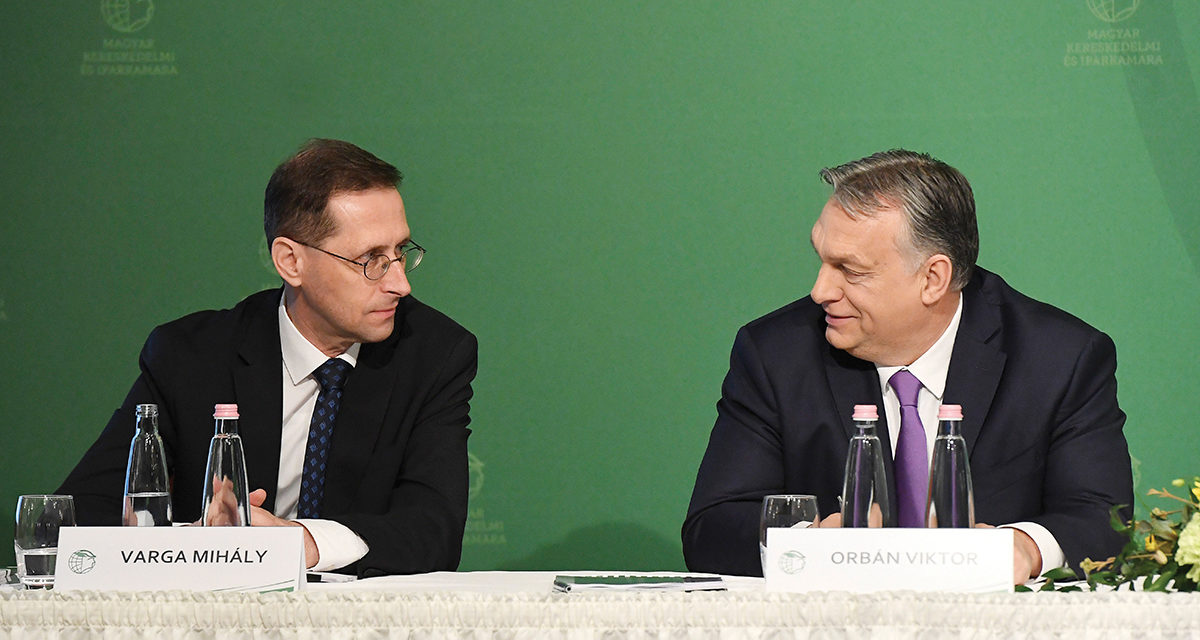Many layers of Hungarian society benefit from significant government benefits. Is it an irresponsible distribution or an economic policy step? Distribution of election money or a boost to the economy? - asks Dániel Oláh and Ábel Pálfy Dániel in the analysis of the weekly newspaper Mandiner.
It is also difficult to follow the benefits that will soon land in the pockets of Hungarians. The more well-known measures, such as exemption from SJA for young people, refund of SJA for families, the return of the 13th monthly pension in addition to pension increases, or the maximization of the petrol price at HUF 480 are just the surface. Next year, the salaries of nurses, nursery carers, and workers in the social and cultural sectors will also be increased. 2022 begins with the payment of a six-month gun allowance to professional sworn members of armed and law enforcement personnel. In addition, three hundred thousand people will be better off by raising the minimum wage to HUF 200,000, and eight hundred thousand by increasing the minimum wage for skilled workers to HUF 260,000. The opposition calls the benefits an irresponsible electoral distribution.
We spend more to spend less!
During the coronavirus crisis, the question arose as to whether it is worthwhile to return earlier to the low budget deficit target - lower than that demanded by the Union, which is otherwise suddenly becoming very lenient with regard to spending. The alternative is for fiscal policy to provide sufficient stimulus and support to restart the economy. The world has not seen a deeper than the current health-economic crisis in recent decades, which may justify the fact that the budget should act in support. In 2010, this issue had to be decided after a crisis: at that time, international organizations demanded rapid austerity, which Hungary rejected, and this laid the foundation for the extraordinary Hungarian catch-up story of the decade . In the past year, our level of development compared to the EU average exceeded that of Greece and Slovakia, we are on the same level as Poland, and Portugal has also become within reach.
According to analyses, in addition, larger temporary spending can result in stronger growth, since budget spending has a multiplier effect. An increase of one percentage point means approximately HUF 500 billion in extra added value, of which almost 40 percent, i.e. HUF 200 billion, appears immediately in the budget. In addition, in case of higher economic growth, the budget deficit and public debt in proportion to GDP will also be lower.
It is therefore not a paradox that higher budget spending can lead to greater sustainability and a smaller budget deficit in the long term - and the goal of economic policy is to ensure that the public debt does not exceed 80 percent of GDP. This means that a moderate, considered recovery of public finances can even help the debt to grow. After 2010, our country was able to reduce its debt in parallel with the rejection of the austerity measures, while Greece was stuck in a state of permanent crisis as a result of the austerity measures. The spending, which some actors on the opposition side call an irresponsible distribution of money, can actually be considered a considered growth stimulus.
The market is not omnipotent. State intervention is essential in times of crisis. We've known for 100 years! Kaynes' theory is almost cliché. The fact that the elections are approaching is just icing on the cake for Fidesz. We could use a New Deal!
Source and full article: mandiner.hu













